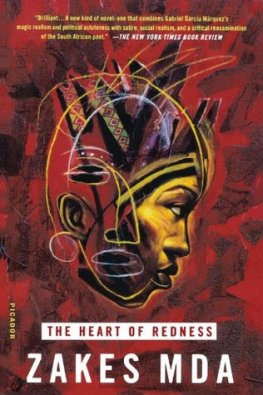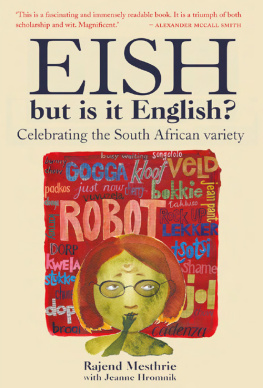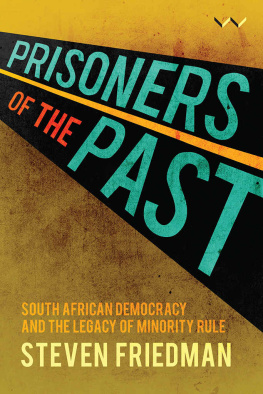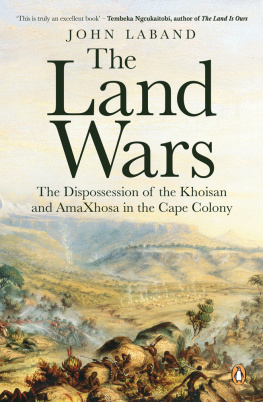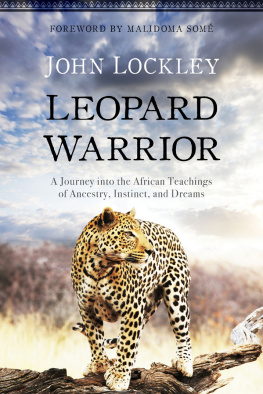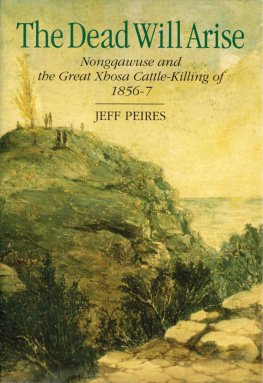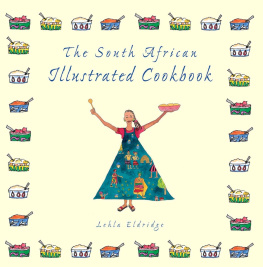Acclaim for The Heart of Redness
A major step in the new South African novelnow a polyphony of voices, suddenly freed yet still shadowed by deep and immense riddles.
The Village Voice
Zakes Mda writes of his troubled homeland with as much affection as outrage, as much love as lamentation.... This emotionally rich novel dares to seek redemption amid desolation. In these devastated lives, Mda finds grace, tenderness, even the kind of world-weary humor that is born of hardship.
The Boston Globe
A novel of tremendous scope and deep human feeling, of passion and reconciliation... A seamless weave of history, myth, and realist fiction. It is, arguably, the first great novel of the new South Africaa triumph of imaginative and historical writing.
The Seattle Skanner
In an unaffected, generous style that blends social and magical realism, oral tradition and written history, Mda spins stories that both read like myth and chronicle ordinary South African life.
The Philadelphia Inquirer
Jumping handily between past and present, Mda deftly renders the tensions between maintaining an indigenous culture and altering it in the name of progress.
Entertainment Weekly
Mda tells his countrys stories through beautifully realized characters whose search for love and connection take you up close to the black experience, past and present.
Booklist
A prolific and prominent new voice of South African literature, Mda transforms historical events and invents new ones that express his continued concern, as in these two novels, that the liberators do not become the oppressors... A brilliantly profuse novel... provocatively offbeat and tragically weird.
Los Angeles Times Book Review
A nuanced story about belief, memory, and the complex legacies of colonialism and its contemporary heir, global capitalism. [Mda] paints a vivid picture of a new South Africa of uncertain future... where the past is deeply contested terrain and social equality remains a faraway dream.
Mother Jones
Mdas fascinating narrative skill reveals the past as a powerful presence in the present: of his characters, and of all of us, as we live.
Nadine Gordimer
A work of extraordinary richness, suffused with genuine mythic power: comparable to the recently discovered fiction of Moses Iszegawa and Emmanuel Dongalaand not unworthy of comparison with the masterpieces of Chinua Achebe.
Kirkus Reviews (starred review)
Rich in the sensuality and exoticism of African life.
The Commercial Appeal (Memphis)
Also by Zakes Mda
The Madonna of Excelsior
She Plays with Darkness
Ways of Dying
The
Heart of
Redness
Zakes Mda

THE HEART OF REDNESS. Copyright 2000 by Zakes Mda. All rights reserved. Printed in the United States of America. For information, address Picador, 175 Fifth Avenue, New York, N.Y. 10010.
www.picadorusa.com
Picador is a U.S. registered trademark and is used by Farrar, Straus and Giroux under license from Pan Books Limited.
For information on Picador Reading Group Guides, as well as ordering, please
contact the Trade Marketing department at St. Martins Press.
Phone: 1-800-221-7945 extension 763
Fax: 212-677-7456
E-mail: trademarketing@stmartins.com
Library of Congress Cataloging-in-Publication Data
Mda, Zakes.
The heart of redness / Zakes Mda.
p. cm.
ISBN 0-312-42174-5 ISBN 978-0-312-42174-8
1. Triangles (Interpersonal relations)Fiction. 2. Xhosa (African people)Fiction. 3. South AfricaFiction. 4. VillagesFiction. 5. CasinosFiction. I. Title.
PR9369.3.M4 H43 2002
823'.914dc21 2002025008
First published in the United States by Farrar, Straus and Giroux
First published in South Africa by Oxford University Press
10 9 8 7 6
DEDICATION
There is a real-life trader in Qolorha, whose name is Rufus Hulley, who took me to places of miracles and untold beauty. He must not be mistaken for John Dalton, the trader of The Heart of Redness, who is purely a fictional character. I am grateful to Rufus, and to Jeff Peires, whose researchwonderfully recorded in The Dead Will Arise and in a number of academic papersinformed the historical events in my fiction. As for the people of Qolorha, they will forgive me for reinventing their lives.
I wrote this novel in honor of new lives, among which I count my son Zukile, my daughter Zukiswa Zenzile Moroesi, and my daughters son, Wandile.
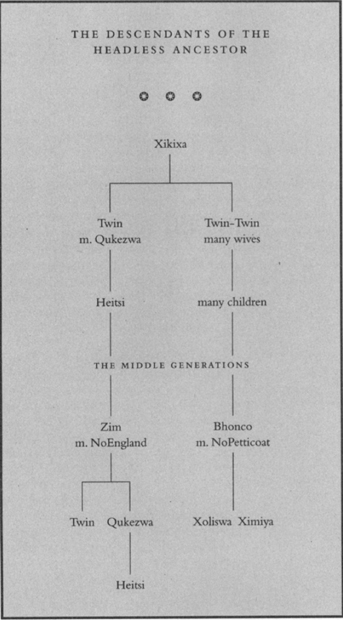
The Heart of Redness
1
Tears are very close to my eyes, says Bhonco, son of Ximiya. Not for pain... no... I do not cry because of pain. I cry only because of beautiful things.
And he cries often. Sometimes just a sniffle. Or a single tear down his cheek. As a result he carries a white handkerchief all the time, especially these days when peace has returned to the land and there is enough happiness to go around. It is shared like pinches of snuff. Rivers of salt. They furrow the aged face.
Bhonco is different from the other Unbelievers in his family, for Unbelievers are reputed to be such somber people that they do not believe even in those things that can bring happiness to their lives. They spend most of their time moaning about past injustices and bleeding for the world that would have been had the folly of belief not seized the nation a century and a half ago and spun it around until it was in a woozy stupor that is felt to this day. They also mourn the sufferings of the Middle Generations. That, however, is only whispered.
Bhonco does not believe in grieving. He has long accepted that what has happened has happened. It is cast in cold iron that does not entertain rust. His forebears bore the pain with stoicism. They lived with it until they passed on to the world of the ancestors.
Then came the Middle Generations. In between the forebears and this new world. And the Middle Generations fleeted by like a dream. Often like a nightmare. But now even the sufferings of the Middle Generations have passed. This is a new life, and it must be celebrated. Bhonco, son of Ximiya, celebrates it with tears.
NoPetticoat, his placable wife, is on the verge of losing patience with his tears. Whenever someone does a beautiful thing in the presence of her husband she screams, Stop! Please stop! Or youll make Bhonco cry!
She dotes on him though, poor thing. People say it is nice to see such an aged couplewho would be having grandchildren if their daughter, Xoliswa Ximiya, had not chosen to remain an old maidso much in love.
It is a wonderful sight to watch the couple walking side by side from a feast. He, tall and wiry with a deep chocolate face grooved with gullies; and she, a stout matron whose comparatively smooth face makes her look younger than her age. Sometimes they are seen staggering a bit, humming the remnants of a song, their muscles obviously savoring the memory of the final dance of a feast.
The custom is that men walk in front and women follow. But Bhonco and NoPetticoat walk side by side. Sometimes holding hands! A constant source of embarrassment to Xoliswa Ximiya: old people have no right to love. And if they happen to be foolish enough to harbor the slightest affection for each other, they must not display it in public.
Tears are close to my eyes, NoPetticoat, snivels the man of the house, dabbing his eyes with the handkerchief.
Next page


